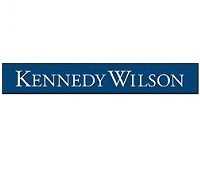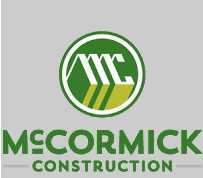RE/MAX Brokers Report Medical Providers Have Stepped Up Purchasing and Leasing
CHICAGO, IL – May 23, 2012 – (RealEstateRama) — As the commercial real estate market slowly recovers throughout Chicago and its suburbs, a pair of top brokers with the RE/MAX Northern Illinois real estate network pointed to one class of commercial buildings that are drawing increased attention throughout the region: medical office buildings, urgent care centers, hospital expansions and other forms of healthcare real estate.
Dave Shalabi, a broker with RE/MAX Synergy in Orland Park, and Deepika Syal, a broker with RE/MAX United in Wheeling, both say that they are seeing a growing number of doctors, physical therapists, dentists and other medical professionals looking for new space in Chicago and its suburbs.
This increase in demand for new space by the healthcare community is providing a solid boost to commercial real estate in general in the Chicago area, the RE/MAX brokers said.
As an example, Shalabi points to an MRI clinic that he recently helped lease vacant space in the southwest suburbs of Chicago. His hope is that this is just the first move in a string of new medical providers locating in the area.
“We are very excited to see just how strong demand for medical office space is becoming,” Shalabi said. “We think this deal will help spur other medical providers to fill up some of the vacancies in the area.”
Syal, too, says that she is seeing an increase in the number of medical providers in the Wheeling area buying buildings and leasing vacant office space.
Part of the increased demand comes down to economics: Rents have fallen in all commercial real estate categories, including medical office space. This has made it more affordable for physicians and other medical providers to move into nicer office space.
“The doctors and other medical professionals are making moves,” Syal said. “They are moving to bigger and larger spaces because prices have fallen. They are able to upgrade to better spaces without having to spend as much money as they would have just three or four years ago. Many medical providers are actually buying buildings today, too. They have that ability today, with the more affordable prices, to go out and grab a nice a space for themselves.”
National numbers validate the optimism felt by Syal and Shalabi. According to data from real estate information firm CoStar, the total vacancy rate for medical office space fell to 11.3 percent during the first quarter of 2012. That’s the lowest this rate has been since late 2008, according to CoStar.
The strength of the healthcare real estate market has even inspired some developers to build new medical office buildings, urgent care centers and hospital additions. This is relatively rare today in commercial real estate, as new construction for most commercial sectors has slowed to a halt. According to CoStar, though, developers added nearly 3.5 million square feet of office space across the United States in the first quarter of the year. That is the most new space in this sector since early 2009.
The strength of this market, though, shouldn’t be a surprise. People, after all, need to see doctors, dentists, psychiatrists and physical therapists whether the economy is strong or weak. In addition, demand for healthcare services in the United States seems likely to grow as the country’s population continues aging.
This is part of the reason that the U.S., according to a recent report by the Council on Foreign Relations, spends an estimated $2 trillion every year on healthcare expenses, the highest figure for any industrialized country.
According to Shalabi, strong demand for medial office space helps build a healthy commercial real estate market because most doctors and other medical providers typically take out longer-term leases than do other commercial tenants. That, in turn, adds to the stability of commercial districts, Shalabi said.
“These longer-term leases are something we haven’t seen much of in the past few years,” he said. “When medical providers take leases of this type, they help sustain the strip malls and office corridors into which they move. Plus, they help generate increased foot traffic that attracts other businesses to fill nearby vacancies. Retail and other professional businesses like to be near medical providers. A strong demand for medical space helps boost the economy as a whole.”
Shalabi is optimistic, too, that a proliferation of urgent care facilities will help reduce commercial vacancies across the Chicago area.
“We are seeing urgent care facilities pop up all over,” Shalabi said. “People are demanding them. They want to be as close as possible to medical providers, and these urgent care facilities provide this opportunity. I have young children, and I find it comforting myself to see these facilities going up.”
Syal, too, has seen the increased demand for medical office space. In fact, her RE/MAX office recently moved to a new location in Wheeling. What filled the space they left behind? An eye doctor.
In her market, Syal is seeing building owners increasingly splitting larger spaces into smaller office suites. This, too, has helped attract medical providers to the area, she said, as doctors and others seek out smaller, more affordable office space in which to locate their practices.
“It’s hard to find tenants today for very large spaces,” Syal said. “At the same time, however, building owners are dividing these big spaces. For lower rents, medical providers can find some very appealing office space for their practices. And because they can get the space they need at an attractive rent, many are taking out longer leases.”
RE/MAX has been the leader in the northern Illinois real estate market since 1989. The RE/MAX Northern Illinois network, with headquarters in Elgin, Ill., consists of 2,100 sales associates and 110 individually owned and operated RE/MAX offices that provide a full range of brokerage services throughout the northern one-third of Illinois. Its www.illinoisproperty.com and www.remax.com websites are leaders in consumer visits among real estate franchise brands. Its mobile search, m.illinoisproperty.com, allows users to conduct real estate searches on any mobile device with Internet access. The northern Illinois network is part of RE/MAX LLC, a global real estate organization with 88,000 sales associates in 89 nations.












